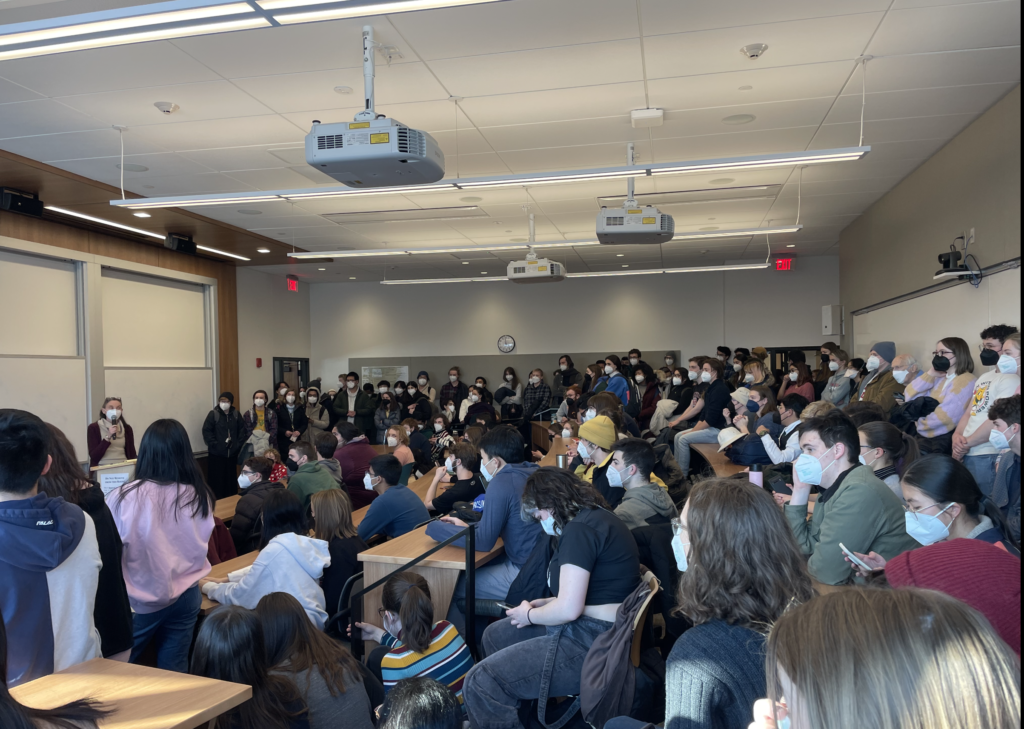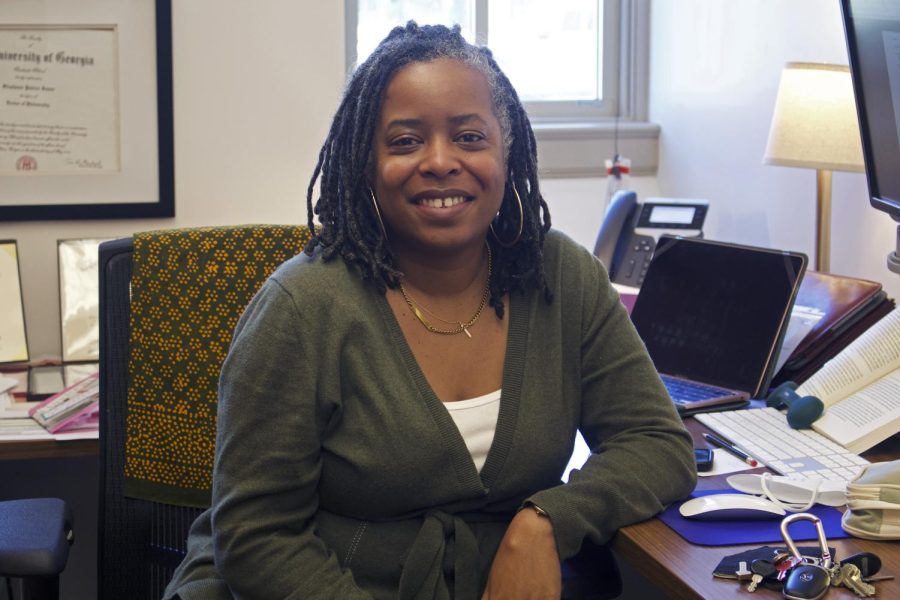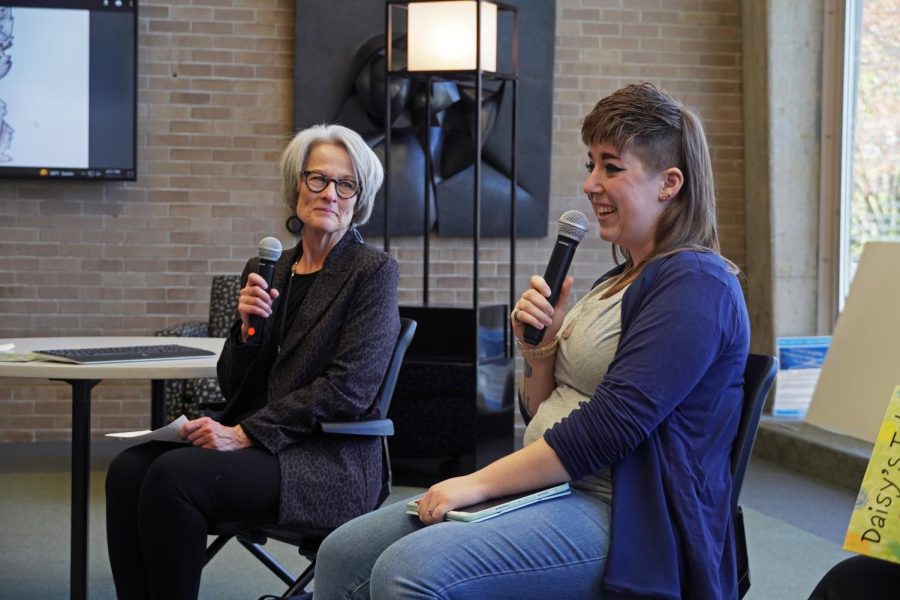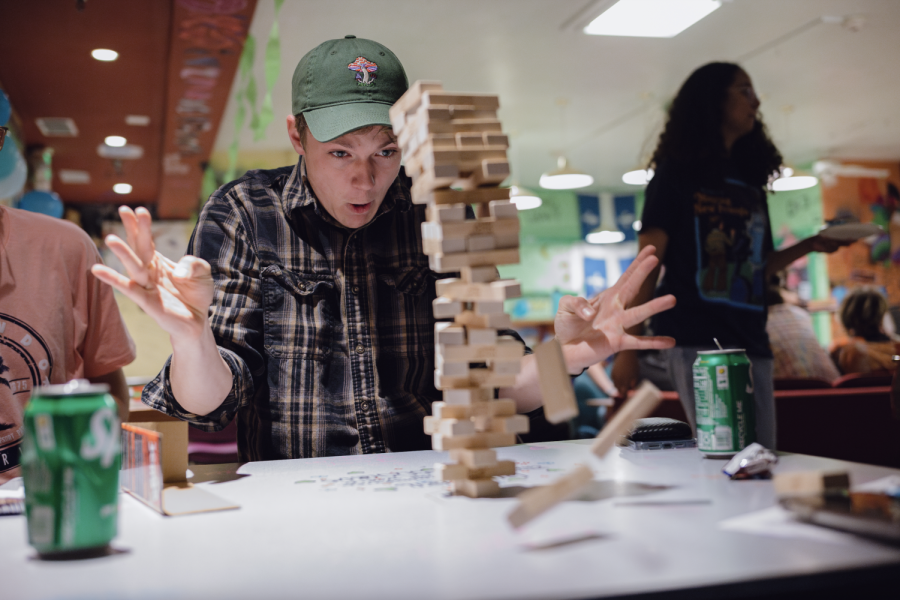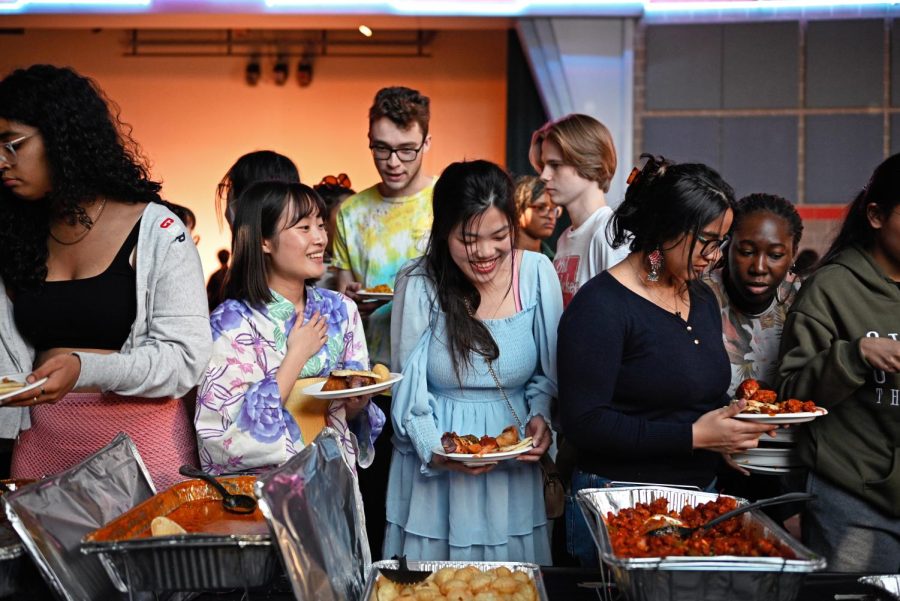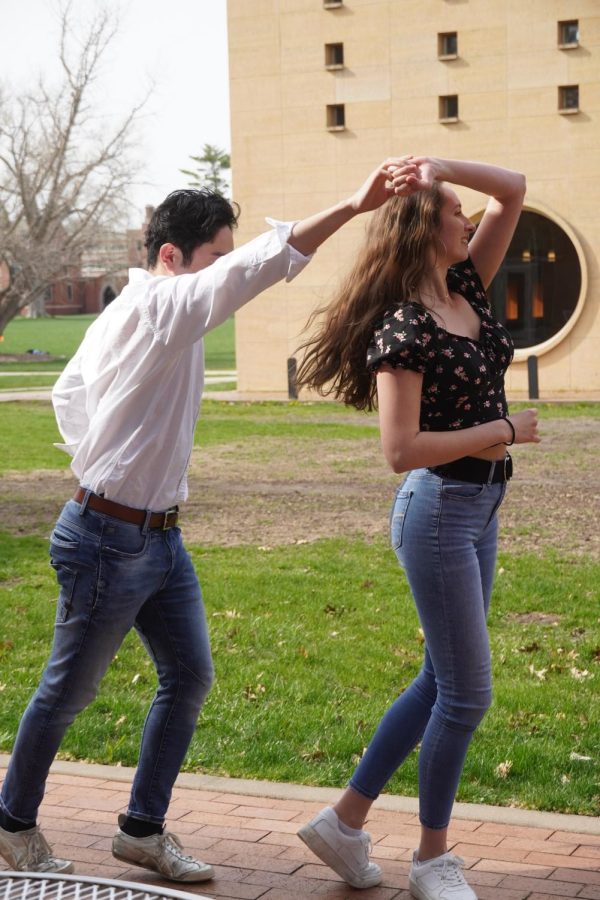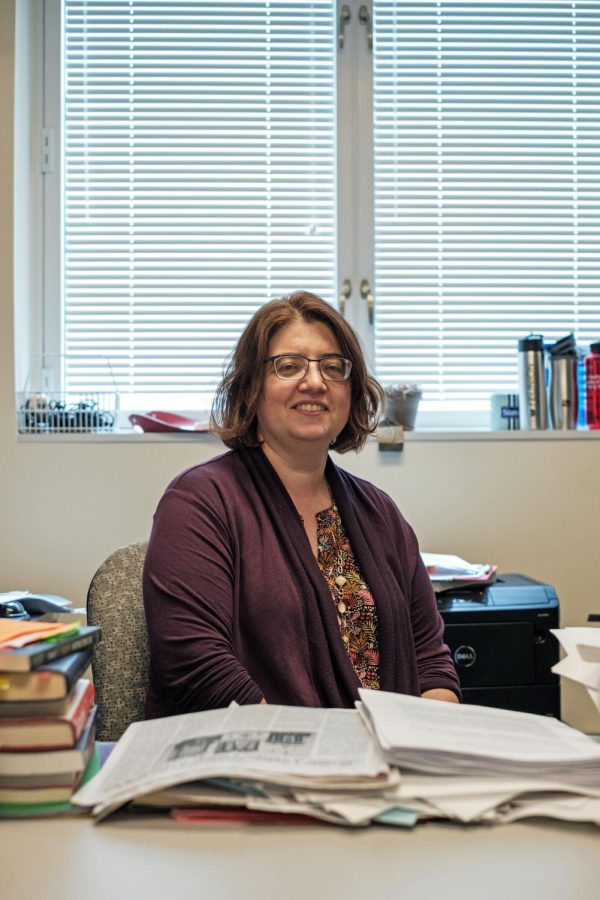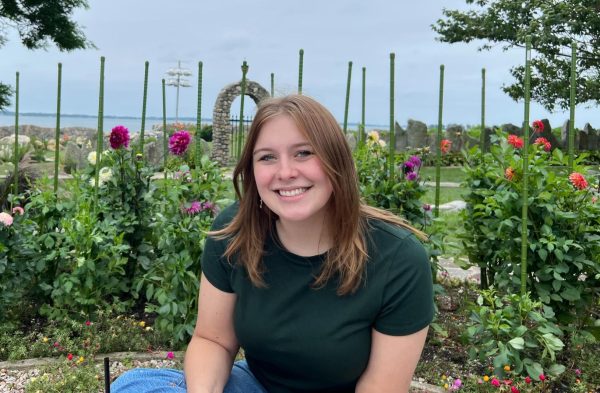The Russian invasion of Ukraine on Feb. 24 might seem worlds away from Iowa, but that didn’t stop over one hundred Grinnell students from pouring into a HSSC classroom for a faculty teach-in the next day with the burning question, “What happens now?”
“When the tensions started to build, it was clear that we needed to do something to inform and help students process what was happening,” said Russian Professor Todd Armstrong. Originally slated for March 3, the faculty fast-tracked the event in order to more quickly address this alarming assault.
The faculty speakers included Professor Danielle Lussier, chair of political science and Russian, Central European, and Eurasian studies, Armstrong, Professor Ed Cohn, history, Professor Kesho Scott, American studies and sociology, and Professor Wayne Moyer, chair of policy studies and professor of political science.
“Our original goal had been to try to shed some disciplinary knowledge from scholars who think about this region a lot,” said Lussier.
The panel also provided a space for students from the region to voice their opinions and share their stories. “I know we have some Eastern European students who would be very concerned,” said Moyer, who has several of these students in his international politics class this semester.
Moyer said he expected around 30 people to show up to the event. But when over 100 Grinnell students piled into HSSC 3325, he said, “I was amazed. I even had trouble getting in … I was very pleased with the audience.”
Armstrong echoed this sentiment, saying, “it’s a sad thing that we had to get together to talk about war, but it was heartening to see Grinnellians come together to face a crisis.”
In fact, so many students showed up to the event that faculty asked some to leave the room and attend virtually in nearby classrooms.
Each faculty speaker delivered short speeches that spoke to their specific areas of expertise.
“We didn’t present an exhaustive discussion,” said Armstrong. “But we tried to create a framework and respond to questions.”
Scott opened by cautioning audience members to remember American domestic issues while still protesting international war. She argued that there is a “capacity for a double victory.”
Next, Cohn argued that, despite some expert opinions, Russian President Vladimir Putin is not trying to reinstitute the Soviet Union. Instead, he said this was “driven by an extreme and hard-line version of Russian nationalism.”
Armstrong then began his portion by painting a haunting picture of what many Ukrainians experienced on the morning of Russia’s first attack. He also referenced the fate of small nations, emphasizing Ukraine’s comparatively small size and their geographical location. He ended by quoting Primo Levi’s preface to “Survival in Auschwitz”:
“Many people — many nations — can find themselves holding, more or less wittingly, that ‘every stranger is an enemy.’ For the most part this conviction lies deep down like some latent infection; it betrays itself only in random, disconnected acts, and does not lie at the base of a system of reason. But when this does come about, when the unspoken dogma becomes the major premise in a syllogism, then, at the end of the chain, there is the Lager. Here is the product of a conception of the world carried rigorously to its logical conclusion; so long as the conception subsists, the conclusion remains to threaten us. The story of the death camps should be understood by everyone as a sinister alarm-signal.”
In his remarks, Moyer said, “this is not only an attack on Ukraine; it’s an attack on the continent.” He provided a brief synopsis of the events that had unfolded on Thursday and Friday and made comparisons of the current conflict to the start of the Cold War.
Finally, Lussier provided ending remarks about Russian public opinion before opening the floor to questions.
“People asked the right questions, they pushed us to explore larger issues,” said Armstrong.
The Q&A lasted around thirty minutes after the designated end time. Some questions included: What will we do if sanctions don’t work? What can we do as Grinnell College students? Are we close to another world war?
A few students then left, but many stayed to watch the following presentation given by Eastern European Grinnell students.
Overall, the faculty speakers were pleased with the turnout and engagement from the community.
“Students and members of the community had a desire to be present together in that moment after this international crisis was unfolding,” said Lussier. She added that the panel became an “outlet to bring together their concerns and questions and their curiosity and even attempt to show support and empathy.”
Armstrong said, “Coming and being part of a community and working together and trying to study and learn about the region is itself a form of resistance.”
The S&B followed up with the faculty that participated in the teach-in to further discuss their thoughts about the current crisis in Ukraine. Below are brief spotlights on each professor.
Todd Armstrong: The fate of small nations and the necessity of community
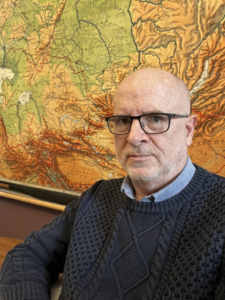
When asked about why he was impelled to speak at the teach-in, Armstrong said, “This is a region that has concerned me professionally and personally for my entire career.”
In his portion of the panel on Friday, Feb. 25, Armstrong made comparisons to the novel “Bridge on the Drina” by Ivo Andric, which he teaches in his classes on Eastern European literature. “Ukraine is being treated as a kind of a colony. Putin and his regime has stated in no uncertain terms that Ukraine isn’t a country, Ukraine [doesn’t have] its own distinct language, that historically they haven’t been a state,” Armstrong said, making a connection between Ukraine’s status as a small nation and how Andric’s novel similarly describes “peoples who are at the will and whim of decisions made by men in foreign capitals and empires far away.”
“Who gets to decide,” Armstrong questioned, “if your country is a buffer zone between empires, and what does that mean?”
“In my book you get to decide who you are. If someone else is deciding who you are and using force, then that has to be denied,” he added.
One student at the panel asked what Grinnell College students could do to support Ukrainians during this time. In a follow-up interview with the S&B, Armstrong responded more to this question, saying, “At the very most basic level is to remember that we must be kind to one another and remember that demonizing the other leads exactly in this direction.”
“I love Russia and Russian culture, the Russian language, I’ve been doing this my whole life, but to stand against Russian aggression doesn’t mean we somehow stop loving that culture,” said Armstrong.
Currently, Armstrong is teaching a course titled Comrades in the Kitchen. After Russia’s attack on Ukraine, he said he discussed the conflict with his students while cooking together. Despite the ongoing crisis, he encouraged both his class and other Grinnell students to “find the community in what we do.”
Todd Armstrong joined the Russian Department at Grinnell College in 1993. His research has focused on the literature of trauma in the context of Poland and the Holocaust, contemporary Russian film and popular culture, and more recently on Russian food culture. He has taught a wide range of courses, including all levels of the Russian language, Dostoevsky, modern Russian culture, and Central and Eastern European literature. He is currently developing new approaches to teaching Russian and Soviet culture through the culinary arts in Grinnell’s new Global Kitchen.
Ed Cohn: A deeper understanding of Soviet history
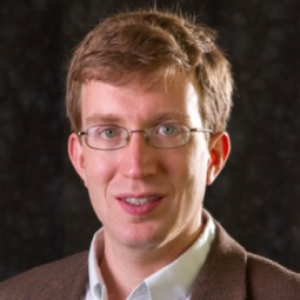
Cohn was impressed with student turnout at the faculty teach-in. “I think it’s good for people to get together and learn more about issues, especially in the midst of the coronavirus because there are fewer opportunities to gather as a group.”
His comments at the panel mostly concerned the history of the Soviet Union. “A lot of what Putin has done and his justification for the invasion was to talk about Russian and Ukrainian history in ways where he basically blamed the whole creation of a Ukrainian nation-state on the Soviet Union, which is a pretty anti-Soviet thing to say,” he said.
Cohn said that Putin “doesn’t want to bring back the Soviet Union. He does see the end of the Soviet Union as a catastrophe for Russia, partly because the economy collapsed and it was incredibly painful for a lot of people. … But for Putin, there’s also the collapse of Russia or the Soviet Union as a great power. So restoring the international position of Russia is a big part of what he wants.”
Asked about what students can do, Cohn said that “I don’t think there is a lot to do here, which is unfortunate.” Nevertheless, he encouraged Grinnell students and Americans in general to keep up on the news, stay informed, and understand the history.
Professor Ed Cohn has taught at Grinnell since 2007. He has a PhD in Russian History from the University of Chicago and specializes in the political and social history of the Soviet Union in the post-WWII period. At Grinnell, he works in both the History and Russian, Central European, and Eurasian Studies Departments. He also often travels to Eastern Europe and is currently working on a new research project concerning the KGB’s “efforts to fight dissent and political unrest in the Baltic republics of Lithuania, Latvia, and Estonia.”
Wayne Moyer: The effectiveness of sanctions and looming threat of “World War 3”
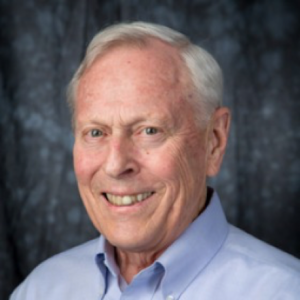
On Thursday, Feb. 24, Moyer spoke with Iowa Public Radio regarding Biden’s announcement about Russian sanctions. This conversation, published a day before the faculty teach-in, helped Moyer “prime” himself for his remarks to students.
Indeed, one of the questions asked at the panel was whether sanctions would work to deter Russia from further attacking Ukraine. When asked to elaborate on his answer, Moyer said, “Europeans have come around with far more sanctions than I thought, and I think Biden has as well. I was skeptical that they would work, but I’m less skeptical now.”
“Biden has a little bit of leeway,” Moyer said, specifically citing a February 27 New York Times article. “In some ways he’s ideally placed in terms of having worked with NATO for many years and knowing virtually all the people personally. I think he’s done the best he can so far and has not made the mistake of acting unilaterally.” He added that Biden has “been very measured. That’s about the best we can be at this stage of the game.”
Moyer also had a lot to say about Putin himself as a leader. “He’s convinced himself that for Russia to be a great power in the world it has to have Ukraine and that it’s worth paying whatever price is necessary to get it.”
Moyer also assessed whether he thought Putin could be considered a rational leader. “In normal situations, I think he is. But with all of this stress, it can be very hard to see dissonant information, so it’s a breakdown of rationality.” He continued, “The greater our commitment is to something, the harder it is to back down.”
Moyer also said that he believes Putin will pay any price to win, specifically in reference to the threat of nuclear weapons. “I’m not sure where he would use them or how he would use them but that would start World War 3.”
“The specter of nuclear war I think even for Putin would be a forbidding one. There would be no winners,” Moyer said.
He continued, “I can’t see him surviving in power if he doesn’t win or find an escape route. With the commitment that he’s made, what does he have to show the Russian people for what he’s achieved? And now with the financial situation in shambles, the question is raised of whether he’s lost it.”
Currently, Moyer is teaching POL-250: International Relations. He said, “In some ways the course is more relevant now than it has been since after the Cold War.”
As the crisis continues to unfold, Moyer emphasized the importance of increased media coverage. “The more repulsed people will be by what they’re seeing,” he said, the more likely they are to act.
Professor Wayne Moyer has worked at Grinnell College for nearly five decades. He boasts an impressive resume which, among many accomplishments, includes his service in the U.S. Navy and his professional teaching career at Yale University and Grinnell College. Currently, Moyer serves as a professor of political science and the department chair for policy studies, teaching classes about international relations, global human rights and international political economies, among others.
Danielle Lussier: Russian propaganda machine makes public opinion difficult to measure
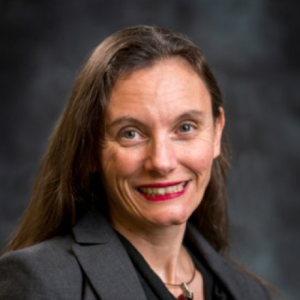
During her portions of the panel, Lussier mostly focused on her research on the Russian population in contrast to the “Russian propaganda machine.” Citing a Feb. 11 Washington Post article, Lussier said, “Information leading up to the attack suggested that there was very little appetite among Russians for a military intervention in Ukraine. I think there was interest in supporting segments of the Ukrainian population that wanted greater autonomy from Ukraine, but I think [there is] a lack of consensus about what role Russia should be playing in doing that.”
“The other layer I would add to that is that Russia is an autocratic regime, so there is risk in speaking out against the official line of propaganda,” said Lussier. She continued, “Now do I think that that means that we should be looking at the Russian population as being sort of broadly anti-war? No. There are people who buy the propaganda and believe it. And I think there are people who do not believe it who are really curious about what’s going on and I think there are people who are just genuinely in the dark.”
Lussier also discussed how some people in public discourse have criticized Biden and other foreign leaders for not imposing harsher sanctions on Russia. “The strength of sanctions, though, really works in having their unity across different allies,” she said. “When you have just single-country sanctioning and not this unified alliance, then it just opens up other outlets in the international economy for Russia to engage in.”
Lussier agreed with Professor Moyer in that sanctions are the best option Biden has now.
Professor Danielle Lussier is.the department chair of political science. She also currently serves as department chair for the Russian, Eastern European, and Eurasian Studies concentration. Lussier teaches about Russian politics, comparative politics and democratization, among other topics. She spearheaded the Feb. 25 faculty teach-in about the conflict in Ukraine.
Kesho Scott: Anti-war strategies for Grinnell students
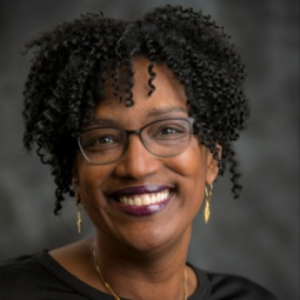
When asked about her involvement in the panel, Professor Scott said, “I invited myself because I teach social movements… I thought that I could make a contribution.”
During her portion of the panel, Scott provided an example of Grinnell students rallying against the Vietnam War in the 1960s. She focused many of her comments on the necessity of social movements amidst both domestic and international crises. “There is a strong interest that young people have, apparently about being anti-war. And since I study the history of antiwar, particularly in the United States that was impressive. I would expect no less than Grinnell students to do that.”
She continued, “I’m hoping that we will remember that there’s always the internal and the external of any movement.”
Scott mentioned a “double victory strategy,” which she said “remembers that movements are simultaneous, and movements are parallel.” In other words, as Grinnellians grapple and contend with conflicts abroad, Professor Scott cautions us to concurrently consider problems in America. By drawing on examples like the Women’s Movement, the Civil Rights Movement, and Black Lives Matter, Scott said, there is a greater potential of successfully combating both domestic and international issues.
When one student at the teach-in asked about what Grinnell students could do to support the anti-war movement, Professor Scott was quick to answer. In her response, she outlined five major strategies:
1. Talk to people in government and let them know we are monitoring their responses to the crisis in Ukraine.
2. Start writing editorials; We can use our platform at the S&B and other publications to display our opinions and maintain the anti-war conversation.
3. Read about what is happening, be involved in events like the teach-in, and engage in activities with others to continue learning and generating new ideas of how to speak out against war.
4. Bring these subjects into classes and spread the word wherever possible (be it in class, talking to your friends and family, or on social media).
5. Use whatever skills you have to contribute to the important symbolic aspect of anti-war movements. Specifically, Professor Scott referenced the song “We Shall Overcome” as a form of resistance. Songs, art, dance, and other forms, she said, can be powerful cultural and symbolic mediums to promote this resistance.
In reflecting more generally about the teach-in, Scott said, “My hope is that we have a concerted, intentional antiwar set of activities that we can continue to grow our consciousness.”
Professor Kesho Scott is an Associate Professor of American Studies and Sociology at Grinnell. According to her Grinnell College bio, Professor Scott was “a founding member of International Capacity Building Services, a cultural competency training team that specializes in facilitating both “unlearning isms” and Human Rights workshops as well various seminars and training programs that have been successfully adapted for audiences throughout the United States and abroad.” Currently she teaches courses about global race and ethnicity and global social movements. Next fall she will teach a Sociology course about race and ethnicity and in the spring she will teach an American Studies Journey course about peace, and 2-credit class which she called the “activist’s handbook.”

















































